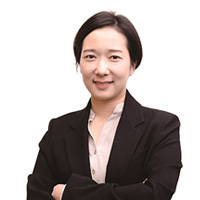Income disparity in entertainment industry on the rise
By Park YunaPublished : Oct. 26, 2020 - 15:45

The income gap among artists in the entertainment industry in Korea has widened over the past several years with the disparity among singers the most stark, surpassing that among actors and models, government figures showed.
The total annual income of 63 singers in Korea – the top 1 percent of singers in Korea in terms of earnings -- recorded 217 billion won ($192.2 million) in 2018, accounting for 53 percent of the total income of singers, according to the document submitted by the National Tax Service to Rep. Yang Kyung-sook of the ruling Democratic Party.
The singers in the top 1 percent earned 3.4 billion won each on average in 2018, which is 113 times higher than the annual income of singers, which was 64 million won on average.
The income gap has intensified compared to 2014 when the average annual income of the top 1 percent of singers was 93 percent higher than the rest, accounting for less than 50 percent of the total annual income of singers in Korea.
“The income disparity in the entertainment field is getting worse,” Yang said in a statement. “We should encourage artists to file transparent income reports as well as protect low-income artists through the employment insurance program.”
In the acting sector, the 180 actors in the top 1 percent reported a total of 306 billion won in income in 2018, accounting for 46.9 percent of the total income among actors. Their average annual salary of the top 1 percent of actors came in at 1.7 billion, won while the average salary of actors was 36 million won.
The income disparity among models followed. The top 81 models earned 500 million won on average in 2018, while the annual yearly income for models stood at 11 million won.
By Park Yuna (yunapark@heraldcorp.com)
The total annual income of 63 singers in Korea – the top 1 percent of singers in Korea in terms of earnings -- recorded 217 billion won ($192.2 million) in 2018, accounting for 53 percent of the total income of singers, according to the document submitted by the National Tax Service to Rep. Yang Kyung-sook of the ruling Democratic Party.
The singers in the top 1 percent earned 3.4 billion won each on average in 2018, which is 113 times higher than the annual income of singers, which was 64 million won on average.
The income gap has intensified compared to 2014 when the average annual income of the top 1 percent of singers was 93 percent higher than the rest, accounting for less than 50 percent of the total annual income of singers in Korea.
“The income disparity in the entertainment field is getting worse,” Yang said in a statement. “We should encourage artists to file transparent income reports as well as protect low-income artists through the employment insurance program.”
In the acting sector, the 180 actors in the top 1 percent reported a total of 306 billion won in income in 2018, accounting for 46.9 percent of the total income among actors. Their average annual salary of the top 1 percent of actors came in at 1.7 billion, won while the average salary of actors was 36 million won.
The income disparity among models followed. The top 81 models earned 500 million won on average in 2018, while the annual yearly income for models stood at 11 million won.
By Park Yuna (yunapark@heraldcorp.com)


















